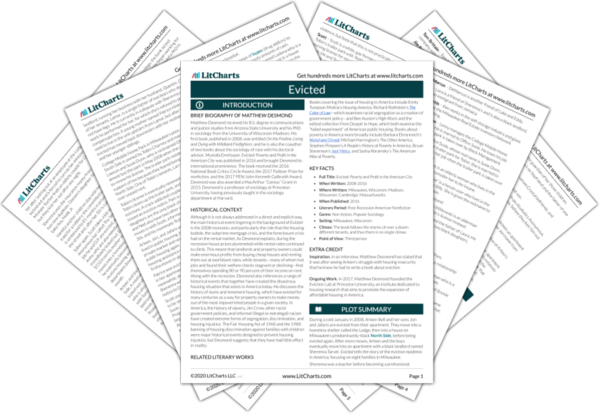Arleen’s relationship with Trisha brings a degree of comfort and ease to her unstable and difficult situation. Yet the fact that Arleen and Trisha are brought together by mutual chaotic circumstances means that the support they can provide for one another is limited. Both women are in highly precarious, vulnerable situations, and ultimately need more support than the other is capable of providing.
